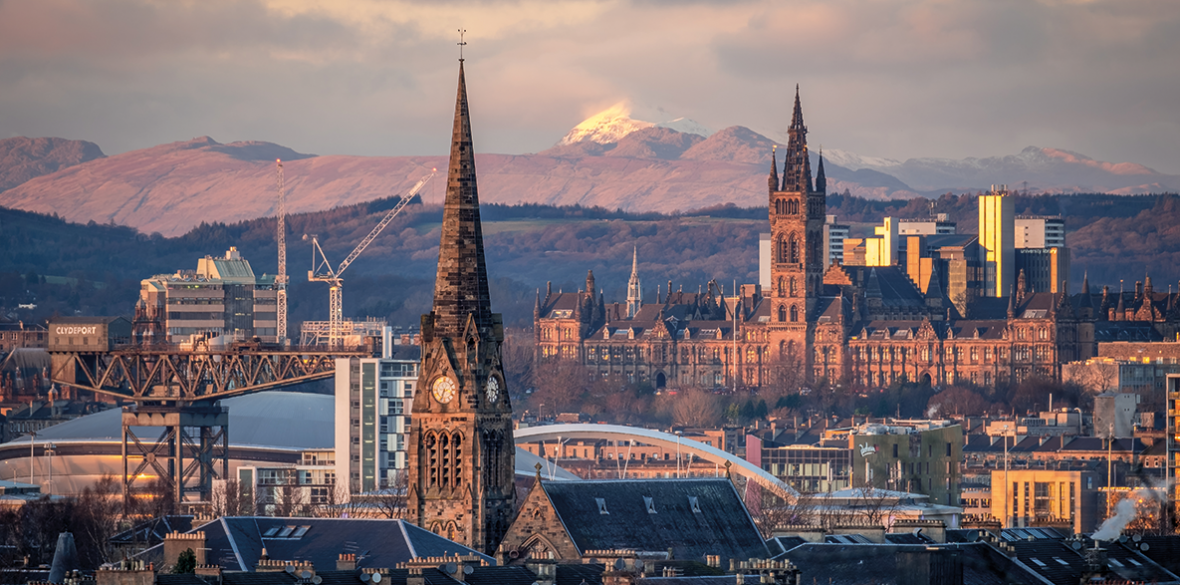This is the last article you can read this month
You can read more article this month
You can read more articles this month
Sorry your limit is up for this month
Reset on:
Please help support the Morning Star by subscribing here
ON SEPTEMBER 23 2021, the leader of Glasgow City Council, Susan Aitken of the SNP, took a seat as a guest on BBC Scotland’s The Nine. The councillor was quizzed on her party’s performance in relation to Glasgow’s latest cleansing crisis.
Since the SNP has taken over, the city has been reduced to only 600 refuse workers — that is, 600 workers across the whole of Glasgow.
Additionally, where there were once 800 road-sweepers in Scotland’s most populated city, there are now only 213.
And when workers from the cleansing department retire, they are no longer being replaced by full-time workers but by agency workers who are not only often paid less, they are not paid holidays and have little to no job security.
The SNP claims it has invested in computer systems to increase “productivity.” But these “productivity” gains actually mean bin uplifts reduced from once per fortnight to once every three weeks and families across the city being faced with £35 charges for additional bulk uplifts — all at a time when there are 14 directors of service with a salary more than £150,000 per annum, a wage that most workers and residents of Glasgow could only dream of.
Cleansing department employees who worked throughout the pandemic were forced to work without gloves and masks for six months because of these same cuts.
There have been cuts on other equipment, such as brushes, for example. In a recent meeting I had with Living Rent and GMB, one of the workers present had told me that he had no choice but to buy his own brush from his own wage, just to ensure he could do his job effectively. He will not be reimbursed for this either.
No worker should be forced to buy their own equipment, no matter how much pride they take in their work and the communities they clean for.
These cuts to staff and bin uplifts have caused secondary problems. Glasgow now has the fourth-worst rat infestation problem in Britain.
Back courts in areas such as Govan, Ibrox, Govanhill and Dennistoun, areas right across the city, are completely filthy and unsanitary due to cuts to staff and equipment.
And with infestations and poor sanitation issues come disease, injury and sickness. Without correct PPE, and with an underfunded and understaffed cleansing department, these issues are going to get worse not better.
But Susan Aitken, rather than taking responsibility for the failures and shortfalls of the council, claimed that the problems were in part due to “wee Neds” and their “vandalism.”
So, what is a “Ned”? A Ned is translated as a “non-educated delinquent” — a term which has long been used to demonise the poor working-class youth across Scotland.
This type of language has become normalised within the city and peaked in 2005 when Glasgow was deemed the “murder capital of Europe” following a UN report, the same year the word “Ned” made it into the dictionary.
As today, Glasgow was then suffering from severe levels of poverty, some of the worst in Europe. Crime reflected this, as it does in all nations with mass inequality and limited wealth distribution.
The increased crime rates were blamed on what was considered “Ned culture,” which consisted of “Neddish” language, “Neddish” dress, and “Neddish” behaviour.
Neds were blamed for much of society’s woes, and because many came from backgrounds that were rarely politically or class conscious, they became easy targets. Who would fight for the extreme poor and why should they when they are not considered voters?
By attacking Neds there was no need to tackle the extreme poverty, or the material conditions which led to this culture or these behaviours.
Ultimately, it was an attack on the victims of poverty, rather than attacking the root cause for this poverty. This was the exact rhetoric used by Aitken.
So, 15 years on from the UN report, where are Neds now? Where the “Ned” was once considered the lumpenproletariat, easily demonised and those considered outside of society, today many of those so stigmatised are now using their experiences to fight these conditions.
This is what makes Aitken’s comments so laughable. Many of those who were once called “Neds” are now directly challenging the failures of poor governance as members and supporters of the Tenants’ Union, Living Rent.
Living Rent is a mass-membership organisation of low- and middle-income renters, fighting together to win improvements in the daily lives of its members and communities and to put political and economic power where it belongs — in the hands of the people.
Living Rent is about community and fighting together. It is not a charity. Nor is it a service. It is a union and is only as strong as its members.
Alongside GMB, which is the union for the cleansing department, Living Rent is demanding an end to quick fixes and half-measures that have created the city’s cleansing crisis.
As Cop26 puts a global spotlight on Glasgow, residents and council workers across Glasgow will be taking action to hold Susan Aitken’s administration to account.
Glasgow needs more than a “spruce up.” It is not simply “problematic patches,” as Aitken claims. These are deep-rooted issues, a product of systematic failures, not “wee Neds.”
If you wish to find out more about the day of action, on Saturday October 23 at 1pm in George Square, then check it out here fb.me/e/1AO3EKBXE. Or, to get involved in Living Rent, visit: www.Livingrent.org/join.










